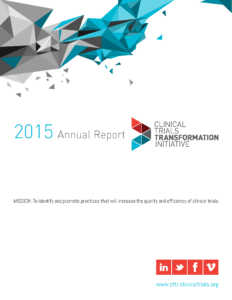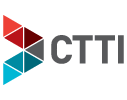Speakers
Marianne Chase
Senior Director Clinical Trial Operations
Neurological Clinical Research Institute
Massachusetts General Hospital
Jörg Goldhahn, MD
Medical Director
Director of Institute for Translational Medicine
ETH Zurich
Keywords
Clinical Trial Transformation Initiative (CTTI); Decentralized Clinical Trials (DCTs); Digital endpoints; Developing novel endpoints
Key Points
- The Clinical Trial Transformation Initiative (CTTI) envisions an evidence generating system with trials that are patient-centered, integrated into health processes, quality, leverage all available data, and improve population health.
- Digital Health Trials can help research obtain better and more reliable information, conduct more patient-centric research, and move at higher speed and efficiency. We need to work together to find ways to evaluate the potential benefits and share lessons learned broadly.
- CTTI’s Decentralized Clinical Trials Project was a 1 year accelerated project to deliver updated recommendations and best practices for Decentralized Clinical Trials (DCTs).
- DCTs range from near-traditional to hybrid to fully remote trials that conduct study visits away from the central study site using strategies such as tele-visits or home delivery of investigational products.
- Decentralized trials require novel technology and digital endpoints. CTTI wants to increase meaningful novel digital endpoints that are clinically relevant and fit-for-purpose.
- CTTI has developed 35 tools to help study teams develop meaningful measures, map individual medical product development, navigate regulatory requirements, and help implement other CTTI recommendations.
Discussion Themes
– One of the key challenges in the field of decentralized trials and digital measures is sharing tools and collaboration between companies. There’s a growing understanding that we have to collaborate on the endpoints and digital technology to advance the field.
– A feasibility study is a good way to gain insight into possible snags when participants may not be tech savvy. Tech support at the site level is important to addressing problems in a study.
Read more about the Clinical Trial Transformation Initiative and CTTI’s vision for clinical trials in 2030. Find CTTI’s recommendations and resources.
Tags
#pctGR, @Collaboratory1



 In this Friday’s PCT Grand Rounds, Marianne Chase of Massachusetts General Hospital and Dr. Jörg Goldhahn of ETH Zurich will present
In this Friday’s PCT Grand Rounds, Marianne Chase of Massachusetts General Hospital and Dr. Jörg Goldhahn of ETH Zurich will present  In this week’s COVID-19 Grand Rounds session, Dr. Pamela Tenaerts of the Clinical Trials Transformation Initiative will present
In this week’s COVID-19 Grand Rounds session, Dr. Pamela Tenaerts of the Clinical Trials Transformation Initiative will present 
